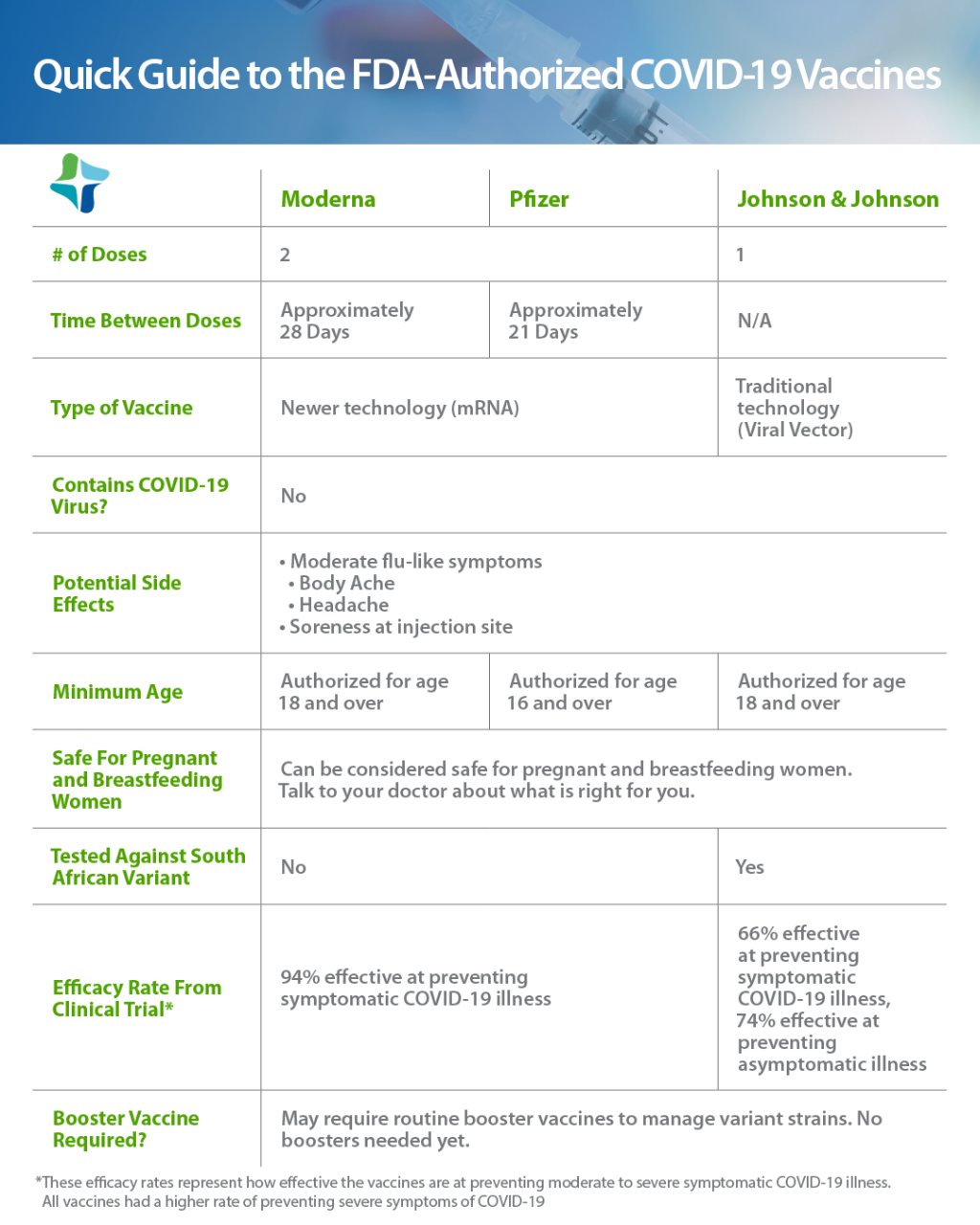Evaluating the Efficacy Rates of Approved COVID-19 Vaccines
No vaccine is 100% effective. The Moderna and Pfizer vaccines have much higher efficacy rates against moderate to severe COVID-19 illness compared to the Johnson & Johnson vaccine, but it’s not that simple. The FDA warns that it’s incorrect to compare any vaccine against another unless they are both included in a head-to-head clinical trial because timing and geographic differences can affect these rates.
The Johnson & Johnson vaccine significantly reduces the likelihood of hospitalization and death. Clinical trials for the Janssen/Johnson & Johnson COVID-19 vaccine occurred several months after previously developed vaccines, and therefore faced variants of the COVID-19 virus that were not present when the other vaccines were tested. All available vaccines provide extremely strong protection against severe symptomatic COVID-19 illness and significantly reduce the likelihood of hospitalization or death.
Things to Consider After Getting Vaccinated
It is still possible to get COVID-19 after receiving the vaccine, so it is essential to continue practicing safe behaviors, including wearing a mask, washing your hands, and social distancing, to prevent the spread of disease. Talk to your doctor if you have any questions.
While it’s important to know the details about the different vaccines, the supply of each varies between locations, so it is unlikely that vaccine recipients will have a choice between the brands. Any vaccine available to you is the one you should consider to help reduce your risk of developing severe COVID-19 symptoms and hospitalization.
Request a vaccine and learn more about our distribution efforts.
Sources:
CDC | Different COVID-19 Vaccines
FDA | COVID-19 Vaccines





